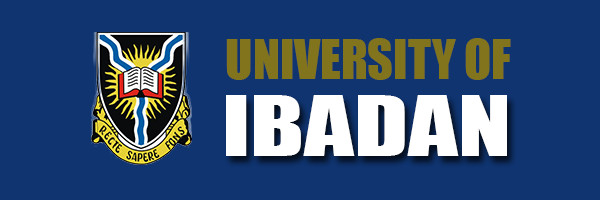Academic Programme
Undergraduate Programmes
1) PHYSIOLOGY
COURSE CODE
|
COURSE TITLE
|
CREDIT UNITS
|
VPY 211
|
Physiology I (Blood, cardiovascular, Digestive and Respiratory Physiology)
|
4. (45L,45P)
|
VPY 222
|
Physiology II (Renal and Reproductive Physiology)
|
4. (45L, 45P)
|
VPY 313
|
Physiology III
|
2. (15L, 45p)
|
VPY 314
|
Physiology IV
|
2. (30L)
|
VPY 639
|
Project
|
6.
|
TITLE AND DESCRIPTION OF COURSES
VPY 211:
Lectures and practicals on the structure and functions of blood. The production, function and degradation of blood cells. Anaemias, blood coagulation, plasma proteins and blood volume measurement. The cardiovascular physiology involves the study of the structure and functions of the heart. The dynamics of blood flow and lymph flow. Blood pressure and heart rate control and regulation. Circulation of blood through special organs e.g. lungs, heart, brain, liver and kidney. Digestion in monogastric animals, prehension, mastication and swallowing. Saliva production and function. Gastric juice production, digestion and absorption of food items. Digestion in the ruminant stomach. Intestinal motility. Hormones of the gut. Avian digestion. Respiratory physiology involves the functions of respiratory system and properties of gas. Mechanism of respiration and gas exchange in the lungs. Regulation of respiratory and buffers in the blood.
Remark: Pre-clinical core course.
VPY 222:
The roles of the kidney in homeostasis. Nephron, the functional unit of the kidney. Glomerular filtration and tubular functions. Water and electrolyte excretion and absorption. Antidiuretic hormone and diuretics. Micturition. Introduction to the endocrine system as a control system in the body. Mechanism of secretion, regulation and function of hormones from the pituitary, thyroid, parathyroid, adrenal, pancreas and thymus glands. Effects of hypo-and hyper-secretions of the above named glands in various animals. Reproductive physiology involves introduction to reproductive processes. Hormones of reproduction. Male and female reproductive processes. Comparative reproductive physiology, fertilization, pregnancy, parturition, lactation. Avian reproduction.
Remark: Pre-clinical core course.
VPY 313:
Impulse propagation and conduction. Central and autonomic nervous system, muscles and bones. Reflex mechanism and types; Neurotransmitters. Motor functions of the spinal cord. Ascending and descending fibre tracts in the spinal cord. The brain. Physiological properties and functions of the autonomic nervous system. Properties of skeletal muscle.
Remark: Pre-clinical core course.
VPY 314:
Physiology of the special senses, gustation, olfaction, hearing and vision.
Remark: Pre-clinical core course.
VBC 211:
Introduction to biochemistry; Chemistry and biochemistry of carbohydrates; chemistry and biochemistry of proteins and enzymes
Remark: Pre-clinical core course.
VBC 222:
Chemistry and biochemistry of lipids; introduction to molecular biology; nutritional biochemistry.
Remark: Pre-clinical core course.
VBC 313:
Emphasis on veterinary aspects of biochemistry e.g. tissue biochemistry; hormones; metabolism of drugs, trace element and other foreign compounds. Metabolism in domestic animals. Introduction to biochemistry of disease and ageing of animals.
Remark: Pre-clinical core course.
VPC 321:
History and basic principles of veterinary pharmacology and toxicology including drug forms, excretion, mechanisms of action and drug quantitation. General pharmacology of the autonomic and central nervous systems.
Remark: Para-clinical core course.
VPC 412:
Drugs acting on the digestive, renal, cardiovascular, endocrine, reproductive, and respiratory systems of animals. Principles of hypersensitivity. Histamine, serotonin, prostaglandins and related drugs. Anti-inflamatory drugs.
Remark: Para-clinical core course.
VPC 423:
A study of chemotherapeutic agents including anti-protozoal, anti-cancer drugs, anthelmintics, antiseptics/ disinfectants, vitamins and immuno-therapeutic drugs.
Remark: Para-clinical core course
VPC 424:
General principles of toxicology. Toxicology of heavy metals, poisonous plants, toxins, nitrates, cyanides and environmental poison. Toxicological antidotes and clinical usages.
Remark: Para-clinical core course.
VPC 615:
Principles of drug dependency, compounding and prescription. The therapeutic strategies, choice of drugs, monitoring of therapeutic responses. Formulation of veterinary drugs. Organization of a pharmacy inventory in a veterinary hospital. Medicinal plants of veterinary importance.
Remark: Clinical core course.
VPY/VBC/VPC 639:
PROJECT: A project involving a simple research topic in any areas of Physiology, Biochemistry, Pharmacology and Pharmacy. Examination shall be by presentation of project report and in some cases with viva-voce.
Remark: Required for 600 level DVM students.
